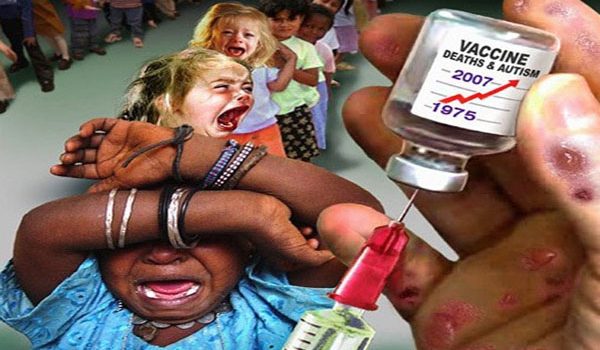Many parents fear that letting their children get vaccinated may result to autism, a developmental disorder that is brought about by an abnormal growth of the brain. It causes cognitive, communication, and social problems in children, making it a life-long condition that needs extra nurture, care and understanding from family.
This belief led to an increase in infection rates from preventable diseases, decrease in childhood vaccinations, and people speculating about worst case scenarios. Ironically, while vaccines are being shun away, the cases of autism seem to skyrocket.
How the Rumor Began
The rumor began after Dr. Andrew Wakefield, a British surgeon, published his research on the journal “The Lancet” in the year 1998. In the study, the surgeon claimed that he discovered a possible link between the measles, mumps, and rubella (MMR) vaccine and autism.
Like any other rumors, the published study spread like wildfire all-over the world. Both medical professionals and parents were alarmed, instilling paranoia and terror in them. Hence, a decade-long medical investigation began.
Unfortunately, while the study has been debunked and Dr. Wakefield discredited, many people continue to believe the falsehood, opting not to take chances with vaccinations.
Scientific Studies Done
In order to erase the conclusion in the minds of everyone, several medical researchers began to conduct their own studies. This is the way the experts uncovered the truth:
- 1999 – a study was done on 500 children which led to the discovery that there is indeed no connection between vaccines and autism
- 2001 – scientists increased the number of subjects to 10,000 with the same result as the 1999 study
- 2002 – in addition to the 2001 study, Denmark and Finland made their own research which involved 535,000 and 537,000 children, respectively. Both were unable to replicate Dr. Wakefield’s claims and stated that there is no link between autism and vaccination
- 2004 – “The Lancet” refuted Dr. Wakefield’s original findings, stating that the study “falsified facts.”
- 2005 – a research was done on over 31 studies, covering over ten million children. They still did not find any connection.
- 2012 – the latest study regarding the link between autism and vaccines. With over 14.7 million children, the research still did not find any connection between the two.
Other Myths Surrounding Vaccination
Besides the autism scare, there are other myths that terrorized parents at night. Some may sound too good to be true while others are borderline real.
- Vaccines are made from toxic chemicals – this is probably due to the development of Thimersol, a vaccine which contains mercury. However, unlike any childhood vaccines, this has been long removed from the vaccination schedule and is only present in seasonal flu vaccines.
- Too many vaccines can override a child’s immune system – vaccines are made from deactivated viruses. If a child can defend himself from daily bacteria and viruses, he will most likely survive from vaccinations.
- Pharmacies and drug companies are only in it for the profits – local flu shot centers like Costco,Target, and Walgreens provide discounts on vaccines. Furthermore, the World Health Organization estimated that in 2013, only $24 billion dollars were gained from vaccines, which roughly account for two to three percent of the market.
Today, about one in four parents still fear that vaccines can cause autism. While it is true that parents have the right to decide whether their child should be vaccinated, it is important to understand that any unvaccinated children can infect babies and other young children, especially in schools or play areas. Understanding and proper education through their doctors may help decrease deaths and illnesses up to five times in 2020.


